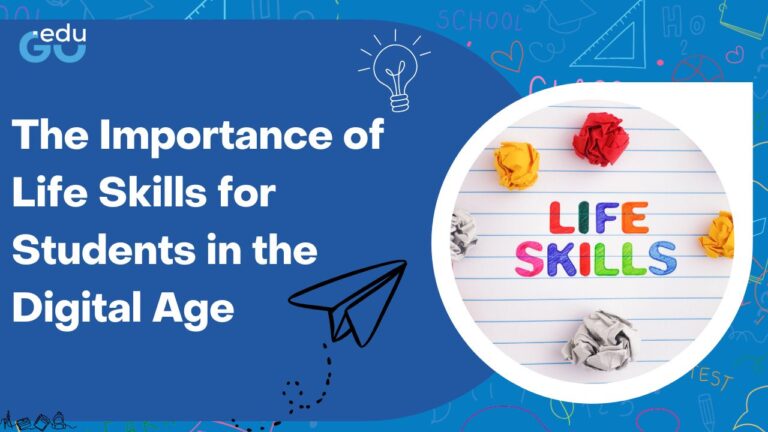As a parent, your ultimate goal is to see your child succeed academically while also developing essential skills that will serve them throughout life. One of the most effective ways to achieve this is by encouraging your child to participate in study groups. These collaborative learning environments not only enhance academic performance but also nurture life skills that are vital for personal and professional growth.
In this article, we’ll explore the top benefits of study groups and their role in shaping well-rounded individuals.
What Are Study Groups?
It is a small gathering of students who come together with a shared goal: to learn and succeed. They can take place in various settings, such as schools, libraries, online platforms, or community centers.
These groups create a supportive environment where students can:
- Share ideas and knowledge.
- Solve problems collaboratively.
- Engage in meaningful discussions.
By working together, students gain unique perspectives and develop a deeper understanding of their subjects, making it a powerful tool for academic and personal growth.
Top Benefits of Study Groups

1. Improved Academic Performance
Participating in groups helps students better understand their coursework, complete assignments effectively, and prepare for exams with greater confidence.
How Study Groups Boost Academic Success:
- Shared Knowledge: Students exchange ideas and fill knowledge gaps by learning from each other.
- Peer Accountability: Group members motivate each other to stay on track with their studies.
- Enhanced Retention: Discussions and explanations help cement information in memory.
By working in a team, students often perform better than they would individually, as they gain clarity on challenging topics and adopt effective study habits.
2. Developing Communication Skills
Effective communication is a cornerstone of success in both academics and life. It provides a platform for students to develop these essential skills.
Communication Skills Learned in Study Groups:
- Active Listening: Understanding others’ viewpoints fosters better comprehension.
- Expressing Ideas Clearly: Explaining concepts to peers sharpens articulation.
- Conflict Resolution: Addressing differing opinions amicably builds interpersonal skills.
Through regular interaction, students become more comfortable expressing themselves, which benefits them in presentations, interviews, and future careers.
3. Building Confidence and Self-Esteem
Participating in a study group creates a supportive atmosphere where students feel valued and heard. This boosts their confidence and self-esteem.
Why Study Groups Boost Confidence:
- Constructive Feedback: Students receive helpful input from their peers.
- Shared Success: Celebrating achievements together fosters a sense of accomplishment.
- Safe Learning Space: Students can ask questions without fear of judgment.
As confidence grows, students become more proactive in their studies and develop a positive attitude toward learning.
4. Enhancing Problem-Solving Skills
It is a breeding ground for critical thinking and problem-solving. Working through complex problems collaboratively hones these vital skills.
Problem-Solving in Study Groups:
- Brainstorming: Group discussions spark innovative ideas.
- Analyzing Diverse Perspectives: Multiple viewpoints lead to well-rounded solutions.
- Testing Theories Together: Students learn through trial and error as a team.
These experiences prepare students to tackle challenges independently, an essential trait for academic and professional success.
5. Fostering Collaboration and Teamwork
Teamwork is a skill that students will rely on throughout their lives. It teach the value of collaboration in achieving shared goals.
Collaborative Benefits of Study Groups:
- Division of Tasks: Group members share responsibilities to accomplish more.
- Learning to Compromise: Working with others teaches flexibility and adaptability.
- Building Lasting Relationships: Bonds formed in study groups often turn into lifelong friendships.
By practicing teamwork, students prepare themselves for real-world scenarios where collaboration is key.
The Importance of Life Skills in Study Groups

Beyond academic achievements, study groups are instrumental in developing essential life skills that will benefit students in all areas of life.
1. Time Management
Balancing group meetings, assignments, and personal study time teaches students to manage their time effectively.
- Setting schedules and meeting deadlines becomes second nature.
- Prioritizing tasks helps them focus on what matters most.
2. Leadership Skills
Taking the lead in a study group—whether organizing meetings or guiding discussions—nurtures leadership qualities.
- Students learn how to delegate tasks and make decisions collaboratively.
3. Adaptability and Flexibility
Adjusting to different opinions and study styles fosters adaptability.
- Students become more open-minded and receptive to change.
4. Emotional Intelligence
Regular interaction in study groups develops empathy and emotional intelligence.
- Recognizing and respecting peers’ emotions builds stronger connections.
5. Resilience and Perseverance
Facing challenges as a team instills resilience.
- Students learn to persist despite setbacks, a skill crucial for long-term success.
How to Encourage Your Child to Join a Study Group
If you’re convinced about the benefits of study groups, here’s how you can encourage your child to participate:
- Talk to Their Teacher: Ask if the school offers study groups or if the teacher can recommend one.
- Highlight Their Interests: Encourage your child to join groups focused on subjects they enjoy or want to improve in.
- Explain the Benefits: Discuss how study groups can enhance their learning experience and social skills.
- Offer Support: Help them find or form a group and provide guidance on effective participation.
Conclusion
Study groups offer an incredible opportunity for students to excel academically while developing critical life skills. From improving communication and collaboration to boosting confidence and problem-solving abilities, these groups prepare students for both school and life.
By encouraging your child to join a study group, you’re investing in their future success and fostering the importance of life skills that will guide them for years to come.










